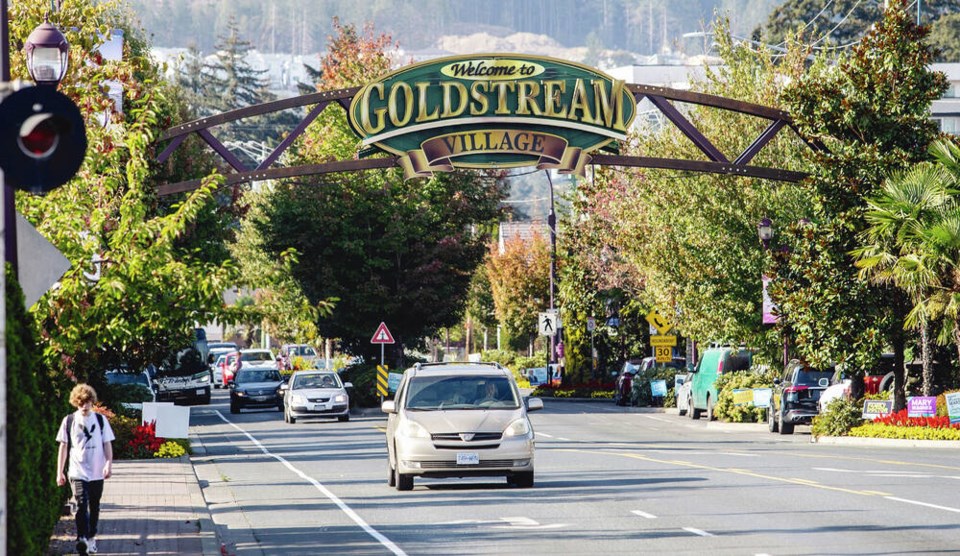Langford residents should brace for a sharp increase in property taxes this year — and in the years ahead, according to a draft budget plan presented to council.
The plan proposes a 11.94% property tax increase this year — about $241 for the average household — representing a significant spike to what property owners have been used to seeing over the previous five years.
Council was told the jump is to deal with costs associated with unprecedented inflation at 7%, maintaining service levels to keep up with Langford’s explosive population growth and public safety and recreation funding obligations and other capital projects.
Additional tax increases include hikes of 7.75%, 6.24%, 5.86% and 5.42%, according to the city’s five-year financial plan.
In the past five years, increases ranged from 1.9% to 2.95%. The previous council made up for reduced tax revenue by borrowing from surplus and reserves.
Although offsetting tax increases with reserves has been a longstanding policy, staff said the practice under a council led by then-mayor Stew Young was dramatically increased in 2020, 2021 and 2022 — taking $1.4 million, $1.65 million and $1.78 million from general reserve funds to cover operating costs in lieu of property taxes.
In a presentation to committee of the whole on Monday, director of finance Michael Dillabaugh said continued use of the policy has “compounding effects” that challenge the reserve’s sustainability. He said the city “must eventually bring tax revenues back up to a level that can fund ongoing operations and must account for all new tax impacts.”
The proposed 2023 increase continues the approach by including a $1.7-million contribution from general reserves to keep the rate as low as possible during a challenging budget year. But relying on reserve funds is projected to be phased out over five years.
One of the significant budget items in the coming year is the hiring four new RCMP officers to bring the “cop to pop” ratio to the required 1:763 as Langford’s population soared over 50,000 and is expected to double by 2045. Extra RCMP officers will cost about $200,000 per officer, according to Mayor Scott Goodmanson.
The city will also contribute $50,000 to the proposed new RCMP detachment in Langford. The city is assuming the lion’s share of the cost of the proposed $81-million facility — about $56 million — which will serve Colwood, Langford, Metchosin and the Highlands.
The city has to add 27 new full-time firefighters — nine new personnel in each of 2023, 2024 and 2025.
The cost in each of those years is $915,000. For 2023, the hiring will happen part way through the year, so the tax impact is a 1.2% increase, or about $456,000.
The city also needs to hire six more staff to keep up with the demands of its increasing population. The new hires in bylaw enforcement, accounting, office, arts and parks — as well as support staff for new RCMP officer hiring — would amount to $361,000 in 2023 and $318,000 in 2024. A 1% tax increase is the equivalent of $380,000.
Council will be doubling its annual $950,000 subsidy to bail out and continue operating the YM-YWCA pool and fitness facility at Westhills, which has lost $10 million since it opened in 2016.
Council said last month it would accept the short-term measure of increasing its contribution to $1.9 million and took a recommendation from staff to consider buying the 60,000-square-foot facility from Westhills Development Corporation, which built and owns the recreation facility, and rents it to the YM-YWCA.
Langford’s capital budget for 2023 is just over $90 million. Property taxes will account for only about $205,500 of the capital budget while the remainder will be funded through reserves, development cost charges, provincial funds, gas taxes and developer contributions, according to staff reports.
Some of the significant capital projects for 2023 include a new aerial truck and engine for the fire department, turf field and lights for North Langford School, land purchases for parks, road improvements, sidewalk completions, a new Jordie Lunn Clubhouse and considerations for next steps in the new RCMP building.
Nothing is written in stone just yet as council considers all options.
As part of the budget deliberation process, council is expected to decide if the city should buy YM/YWCA building, proceed with the RCMP detachment expansion and fund its asset management program. There’s an option to fund all three over the five-year plan.
Possible financial scenarios presented by staff include an additional 1% tax increase on top of the proposed 11.94% in 2023, and use of the majority of the $16.4-million Growing Communities Fund Grant to buy the YM/YWCA facility, as well as an additional 3.5% tax increase in each of the next four years.
The RCMP detachment design phase costs, expected to be paid between 2028 and 2032, likely won’t need another tax increase, according to staff.
The capital asset management fund scenario could see $9.9 million added each year to the city’s reserves and spent on maintaining city infrastructure.
The city said Tuesday that overall taxes will remain lower than the average same-sized municipalities in the region, and across the province, noting the $2,100 projection for an average home in Langford in 2023 is below the estimated average of $2,703 when comparing the municipal portion.
Residents can weigh in on the draft budget at committee of the whole meetings on Thursday (7 p.m.) and Monday (noon).
Council will begin deliberations on April 11 and consider three readings at a May 8 meeting, followed by possible adoption of the plan on May 11.
>>> To comment on this article, write a letter to the editor: [email protected]



